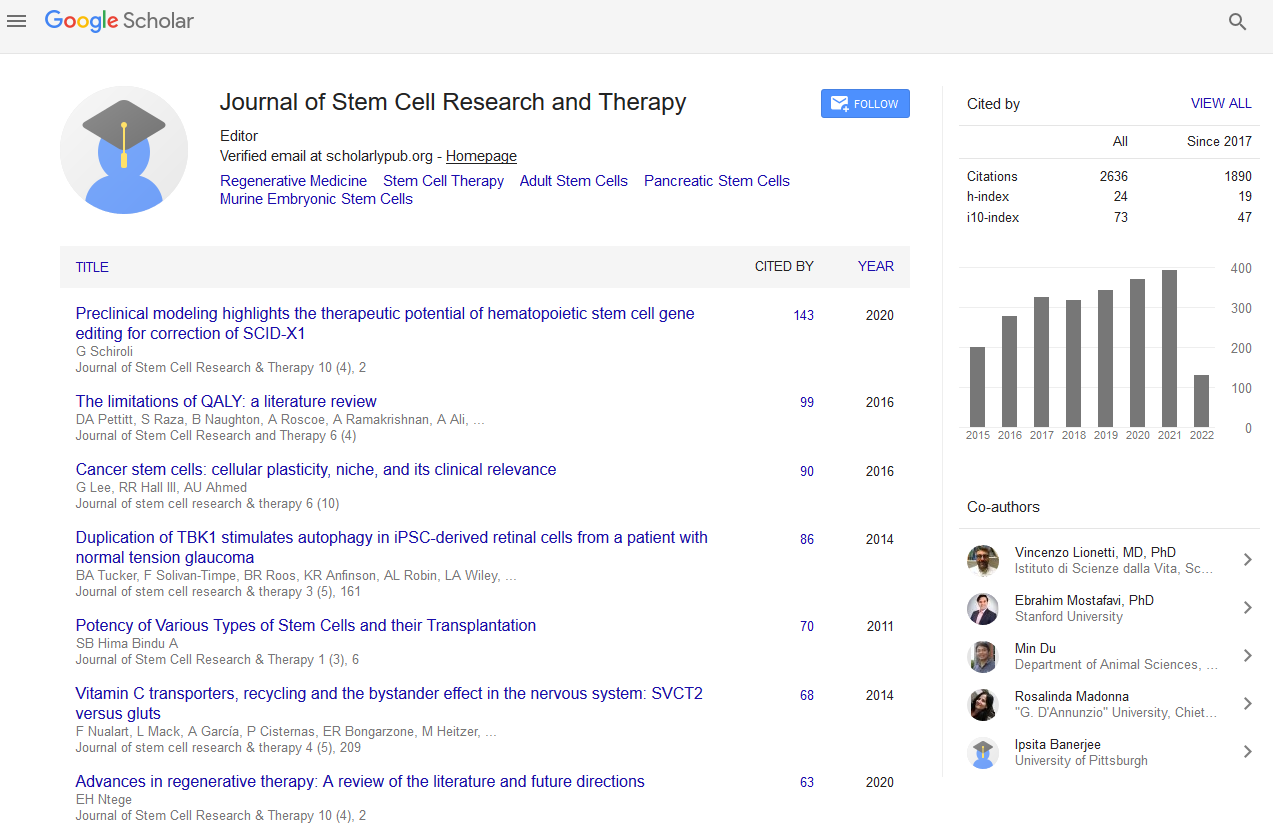Indexed In
- Open J Gate
- Genamics JournalSeek
- Academic Keys
- JournalTOCs
- China National Knowledge Infrastructure (CNKI)
- Ulrich's Periodicals Directory
- RefSeek
- Hamdard University
- EBSCO A-Z
- Directory of Abstract Indexing for Journals
- OCLC- WorldCat
- Publons
- Geneva Foundation for Medical Education and Research
- Euro Pub
- Google Scholar
Useful Links
Share This Page
Journal Flyer

Open Access Journals
- Agri and Aquaculture
- Biochemistry
- Bioinformatics & Systems Biology
- Business & Management
- Chemistry
- Clinical Sciences
- Engineering
- Food & Nutrition
- General Science
- Genetics & Molecular Biology
- Immunology & Microbiology
- Medical Sciences
- Neuroscience & Psychology
- Nursing & Health Care
- Pharmaceutical Sciences
Abstract
Influence of Demethylation Pathway on the Differentiation Potential of Human Mesenchymal Stem Cells
Faisal Ali, Yazan Ranneh, Amin Ismail and Bart vaes
Osteoporosis is associated with a decrease in the commitment of Mesenchymal stem cells (MSC) to the bone forming osteoblast lineage and an increase in the commitment to the fat forming adipocyte lineage in bone marrow of elderly persons. A link between methylation pathway and MSC differentiation remains unclear. Therefore, we hypothesize that alterations in the commitment and differentiation potential of MSC during osteoporosis may be mediated by modification of global methylation pathway. To examine the role of methylation pathway on the differentiation potential of MSC into osteoblasts or adipocytes, human MSC, were used. Adox, which mimics hyperhomocysteinemia effect, was added to cells as a potent methylation inhibitor to block the global methylation pathway of DNA, RNA, Lipid and protein. The effect of demethylation on osteoblast differentiation was determined by measuring the alkaline phosphates activity and the degree of calcification. While, adipocyte differentiation was determined by Oil-red O staining and triglyceride content. It was clearly observed that demethylation reduces alkaline phosphates activity, calcification and thereby, osteoblast differentiation. In contrast, adipocyte differentiation was stimulated by demethylation. The results of this study suggest that demethylation changes the differentiation potential of MSC for more adipogenic and less osteogenic.


